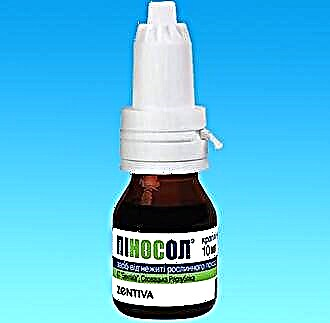Ginger is a unique plant, namely its root, which is used in cooking and medicine. It is often used in the treatment of pathologies of the circulatory system. In view of this, the question "does ginger increase or decrease blood pressure?" The answer is unequivocal - it reduces, and this is achieved through the action of various mechanisms.
All the positive effects of using ginger are due to its rich composition. It is saturated with silicon, zinc, chromium, phosphorus, magnesium, vitamins A, C and group B. There are also amino acids and essential oils.
Plant action
 Ginger has many beneficial properties. Among them:
Ginger has many beneficial properties. Among them:
- Soothes pain.
- Relieves spasms.
- Restores the process of blood supply.
- It has a general tonic effect, that is, it eliminates the feeling of fatigue, restores a person's working capacity, and the root is also able to restore the normal state of the body after physical and psycho-emotional stress.
Ginger is especially known for its immune-boosting effects. Ginger root increases the level of the body's defenses. It is recommended to use it for the prevention of colds, as well as for skin manifestations and allergies.
Ginger and pressure
With hypertension, ginger has a positive effect on the body due to the fact that this plant is able to influence the rheological properties of blood. It acts like acetylsalicylic acid, thins the blood, which makes it easier for the heart. The link between this factor and blood pressure abnormalities is undeniable. Another main property of ginger is the effect on the vascular walls, namely, on the muscles that surround them. Relaxing them and provokes a decrease in blood pressure.
It is important to be careful when taking ginger with pressure along with antihypertensive drugs, as this will increase their effect. This will lead to a significant deterioration in well-being.
The root is indicated for people prone to pressure surges, and with meteosensitivity, since the plant removes spasm of peripheral vessels. After that, the person feels much better.
Low pressure ginger is also effective. Its action helps to increase the indicator. At the same time, the warming effect is activated, blood circulation also improves, blood viscosity decreases, thereby improving the process of saturating the body with oxygen. This increases blood pressure.
Does ginger raise or lower blood pressure? More precisely, it normalizes performance. Therefore, it is recommended to take the root to maintain normal condition.
Hypertension and ginger: recipes
By consuming ginger, blood pressure can return to normal. This root is known from ancient times as a spice for dishes.
If a person has hypertension, then you can get by with easy and quick recipes. For example, it is recommended to add ginger powder or grated root to tea. The main rule: the drink must be freshly prepared. Take half a teaspoon of ginger. The drink should be drunk about 3 times a day.
At high pressure, you can still make tea from grated ginger root. For 1 liter of water, you need to take a root 4 cm long. Mix the liquid with the grated raw materials and put on fire for 15 minutes. To improve the taste of this drink, you can add lemon, a little honey or sugar. It is recommended to drink it in the morning, as it invigorates perfectly, and throughout the day. It is better not to drink it in the evening to avoid insomnia.
To normalize high blood pressure, you can prepare a drink from 1 teaspoon of medicinal root, cardamom and cinnamon.
 The latter should be added to taste. Pour this whole mixture with hot water and leave for 30 minutes. Drinking this tea should be 100 ml 2 times a day.
The latter should be added to taste. Pour this whole mixture with hot water and leave for 30 minutes. Drinking this tea should be 100 ml 2 times a day.
You can add a slice of lemon to all ginger tea recipes. This is quite justified, since lemon not only affects the taste of the drink, but also the state of health. Lemon is a fruit that also has an antihypertensive effect. It contains many useful substances that contribute to the resorption of atherosclerotic plaques in the vessels, thin the blood, etc. In view of this, there is a recipe for the preparation of traditional medicine for high blood pressure from lemons and ginger root. For cooking, you need to grind lemons (200 g) and root (100 g) in a meat grinder. Honey can be added to this mixture if there is no allergy to it. Take this medication 1 teaspoon 2-3 times a day.
Admission rules
Before using any new means to normalize blood pressure, you must first consult a doctor. It is recommended to start drinking teas only in the morning. It is also important to check how ginger tea works on the body and on blood pressure. To do this, you need to measure the pressure before drinking tea, and 30 minutes after drinking tea. After comparison, you can evaluate how ginger affects blood pressure. It will be clear whether ginger increases or decreases performance. Further, it is already possible to decide whether it is worth continuing the course of treatment.
It is noted that for the full effect of the treatment to manifest itself, a course of 1 to 2 weeks is needed. During this time, the required trace elements will be in sufficient concentration to have a powerful healing effect.
The result from the use of ginger tea for each person may be different, it all depends on:
- individual characteristics of the organism;
- the degree of hypertension;
- are there any concomitant diseases;
- what drugs are still being taken by a person.
The sensitivity of the organism to this component is of great importance. If there is a positive reaction of the body to ginger, then the treatment should be carried out systematically.
Contraindications
Treatment of hypertension with ginger tea can be carried out if there are no contraindications to this. That is why you must first consult with a specialist.
If hypertension has developed up to stage 2-3, then the systemic intake of ginger is contraindicated, since at this stage it is necessary to constantly take antihypertensive drugs. And during this period, high blood pressure manifests itself very often. The active substances of the drugs will interact with the substances found in the plant, and there may be an unpredictable result.
Also, doctors note that in some people ginger increases pressure in the myocardium, therefore, if there is a history of heart disease, then a doctor's consultation is needed.
It is also forbidden to use products with ginger if:
- there are pathologies of the gastrointestinal tract, in particular an ulcer;
- with complications of hypertension in the form of hypertensive crisis, heart attack and stroke, hemorrhages, aneurysms;
- have cholelithiasis;
- pregnant women, especially in the 2nd and 3rd trimester;
- diabetes;
- at high body temperature;
- with allergies.
Ginger with high blood pressure can be taken, but it is important to take into account all contraindications. To do this, it is better to seek the advice of your doctor. It is also used for hypotension. The main action of the root, rather, can be called the normalization of blood pressure. Ginger tea is quite suitable for both lowering and increasing its performance.



